|
Tomorrow, we celebrate the birthday of St. Vincent Pallotti, patron of the Catholic Apostolate Center and founder of the Union of Catholic Apostolate. St. Vincent Pallotti was born on April 21, 1795. How appropriate for the saint who lived and worked in the city of Rome to share his birthday with the traditional date for the founding of the city. To help celebrate his birthday, I have put together a list of some of his more interesting achievements and activities during his life. I hope that you too will be inspired by his life. 1) The Baptism of St. Vincent Pallotti St. Vincent Pallotti was baptized on April 22, 1795 in the St. Lawrence Church in Rome. This began his life in the church. 2) St. Vincent Pallotti on Holiday On his arrival in Frascati around 1805, St. Vincent Pallotti exchanged his new shoes for that of a poor boy. Giving away his new clothing to the poor would become a lifelong habit for the saint. 3) St. Vincent Pallotti Makes a Prediction While speaking with the young Giovanni Mastai-Ferretti in 1817, St. Vincent Pallotti predicted that he would one day be elected to the papacy. Mastai-Ferretti was elected Bishop of Rome on June 16, 1846. 4) St. Vincent Pallotti the Professor St. Vincent Pallotti was awarded two doctoral degrees in both theology and philosophy in 1814 and 1819. Teaching was one of the favorite activities of the saint. 5) St. Vincent Pallotti Showing Courage During the cholera epidemic of 1837, St. Vincent Pallotti organized a barefoot procession of religious. This action was penitential and showed that they were not afraid of the disease. 6) Catholic Apostolate Received Church Approval St. Vincent Pallotti received approval for the Catholic Apostolate from the Church in 1835. Pallotti also received support for the Catholic Apostolate from Pope Gregory XVI when others objected to it. 7) St. Vincent Pallotti the Chaplain Beginning in 1838, St. Vincent Pallotti served as a prison chaplain in Rome. He often worked with the condemned, saving many souls. He had a true willingness to serve all, especially the poor and the marginalized. 8) St. Vincent Pallotti the Peacekeeper St. Vincent Pallotti stopped a riot in the Trastevere neighborhood of Rome. He implored the people to stop rioting by showing them an image of Mary, Mother of Divine Love. 9) St. Vincent Pallotti Preaches one Last Time On the last day of the octave of the Epiphany in 1850, St. Vincent Pallotti gave his final sermon. 10) St. Vincent Pallotti Dies In 1850, St. Vincent Pallotti gave his final blessing to his followers. He showed great courage even in the face of death. There are many more stories about St. Vincent Pallotti that you may find interesting. Check out our St. Vincent Pallotti Portal to learn more about our patron and his many works.
0 Comments
“Seek God and you will find God. Seek God in all things and you will find God in all things. Seek God always and you will find God always.” – St. Vincent Pallotti
Today is the 225th anniversary of the birth of St. Vincent Pallotti. In the first twenty years of his life, he experienced a pope run out of Rome by revolutionaries who died in exile and another taken from Rome and held in France by Napoleon. When that pope, Pius VII, returned in 1815, Pallotti was 20 years old and three years away from his ordination to the priesthood. He saw people who were baptized throw off their faith and take up revolution. He witnessed clergy and religious who needed renewal. Twenty years later, in 1835, he founded the Union of Catholic Apostolate, an association of lay people, religious and clergy in order to assist in the Church’s missionary efforts, revive the faith of Catholics, and enkindle charity in the hearts of all. Amid a cholera pandemic that hit Rome in 1837, he worked tirelessly along with the small and new community of priests and brothers, as well as lay people, to care for the suffering and the dying, both spiritually and physically. In the aftermath of that pandemic, which left many orphans, St. Vincent Pallotti founded through the Union of Catholic Apostolate the House of Charity in Rome in 1838. This orphanage for girls is still in operation today and is the birthplace of the Pallottine Sisters. St. Vincent Pallotti evangelized in the streets, cared for the poor, taught and provided spiritual direction to seminarians, clergy, and religious, served in prisons and hospitals, was confessor to the poor and popes, aided the Church’s work in the missions, including the United States, and fostered what today we would call collaboration and co-responsibility among Catholics so that they would live as apostles of Jesus Christ. He was also a mystic who experienced God as Infinite Love and Mercy. It was this experience of God that sent him forth, urged on by Christ’s charity or love (2 Cor. 5:14). Even seeing a third pope and long-time friend, Bl. Pius IX, flee Rome due to revolution in 1848, St. Vincent Pallotti still worked tirelessly until his death in 1850 in the hope that all would come to full life in Christ. His great project of the Union of Catholic Apostolate did not grow large in his lifetime. Today, though, thousands of his spiritual sons and daughters of the Union of Catholic Apostolate—which also includes the Pallottine Fathers, Brothers, and Sisters—continues his work in 56 countries around the world. Pallotti was canonized by St. John XXIII in 1963, just over a month after the close of the first session of the Second Vatican Council—an appropriate time given the Council’s teaching that all are called to holiness and to live as apostles of Jesus Christ. Blessings to all on the birthday of St. Vincent Pallotti! May the Charity of Christ urge us on! Perhaps by this time, having become frustrated by the fact that even for a relatively short period of time we have been forced into isolation, we might find ourselves asking: “Why now?“ , “Why this bad?”, and perhaps even cursing the fact that this pandemic has so radically turned our lives upside down in what seems but a few moments. It might be an experience so taxing because it is so very different for us, but certainly not to human history. Between 1830 and 1837, a cholera epidemic swept through Europe and North America. It began in India, spread to what was at the time called Arabia, and then to Iraq. In 1831, the epidemic reached the Caucasus and soon after spread to Poland, Hungary, Portugal, France, the Netherlands, Spain, and eventually to Italy. Like epidemics in the past centuries, this epidemic also spread from city to city by way of local ports. In Rome, news of the spreading illness was met with the usual responses of apprehension and fear. But there was no small number of people who actually doubted that the disease would have a significant impact on Rome. In July of 1837, the first three people in Rome died of cholera. However, the news media denied that cholera was in fact the cause of these deaths and claimed that lies were being spread by persons seeking to cause panic and attempting to disturb the social well- being of the city. Is it not true that our initial reaction to the news of the Coronavirus was that it was far away in China and so our concern for the spread to the U.S. was rather limited? During the time of the cholera infestation of Rome, the charity of a Roman priest, now St. Vincent Pallotti, emerged in a special way. He immediately saw to it that his priests of the Congregation of the Catholic Apostolate, which he had founded, were on hand constantly (as was he) to meet the spiritual needs of the many penitents who were constantly entering the Church of Spirito Santo where Vincent served as rector to have their confession heard. Assisting the sick, caring for their families, and also spending many hours in the confessional, Fr. Vincent was extremely busy. To respond to the numerous and varied appeals he received from so many, Vincent divided the city of Rome into three sectors, entrusting each sector to his priests working in collaboration with the lay members of the Union of the Catholic Apostolate, which he had also founded, to meet the various spiritual and material needs of a then desperate people. Funds were collected and distributed to families throughout the city who had lost the person responsible for their principal source of income. The rectory of Spirito Santo became a center where families who overnight had become destitute could in writing request whatever it was they needed, and the priests with their lay cooperators would bring to the home whatever was required: bread, meat, fruit and other necessities of life as well. They found beds for the sick, redeemed articles that had been pawned out of desperation for ready cash, and helped families to pay bills that would allow them to purchase further necessities. Vincent and his priests were ever on the move, caring for the ill. They were, at the same time, finding an increasing number of children who had lost their immediate family and now had no one to care for them. In 1838, the year following the end of the epidemic, Vincent organized a lottery offering excellent and expensive prizes donated by his more affluent friends in order to raise funds to begin a program of caring for the orphans left behind by the epidemic. Many of those who won returned the prizes to Vincent that they might be sold and thereby add further monies to the orphan fund. It might well happen, as it did in Vincent’s day, that one or other of us might be called upon to meet certain needs of persons made quite helpless by the present pandemic. No one of us knows either the day nor the hour when we might run into a situation that calls for immediate involvement and appropriate response with no questions asked. May the life of St. Vincent Pallotti, who prayed that “the work of the Blessed Trinity be realized in us,” be a model and inspiration for us during this time. Cf St. Vincent Pallotti: Prophet of a Spiritual Communion. Ed. Fr. Francesco Todisco, SAC. Trans. Kate Marcelin- Rice. Herefordshire, United Kingdom. Gracewing, 2015 “Seek God and you will find God. Seek God in all things and you will find God in all things. Seek God always and you will find God always.” – St. Vincent Pallotti
Do we live our lives seeking God or realize that God is seeking us? God is indeed seeking us. In fact, we have been found in our Baptism. We enter into the mission of the Son who was sent by the Eternal Father into the world to save us. We are co-responsible for this mission and are in “holy cooperation” with the Most Blessed Trinity. Therefore, we are sent by Christ as his apostles or missionary disciples into the Church and the world to revive faith and rekindle charity. We accompany other seekers in becoming found in Christ and through his Church. Today is the 170th anniversary of the death of St. Vincent Pallotti. It is also his feast day. He believed, taught, and lived the ideals of accompaniment, co-responsibility, and holy cooperation mentioned above. His foundation, the “Union of Catholic Apostolate, a gift of the Holy Spirit, is a communion of the faithful who, united with God and with one another in accordance with the charism of St. Vincent Pallotti, promote the co-responsibility of all the baptized to revive faith and rekindle charity in the Church and in the world, and to bring all to unity in Christ” (General Statutes, 1). This means that lay people, those in consecrated life, and clergy are in collaboration with one another, not only in the Union, but also in the Church and with those of good will in the world. Each person has a role. Each person is responsible. Each person shares in the mission of the Church in spreading the Gospel. Pope Francis recently wrote about this shared mission in his Apostolic Exhortation, Christus Vivit. He was writing about ministry with young people, but these words can be extended to all the baptized. “Youth ministry has to be synodal; it should involve a ‘journeying together’ that values ‘the charisms that the Spirit bestows in accordance with the vocation and role of each of the Church’s members, through a process of co-responsibility... Motivated by this spirit, we can move towards a participatory and co-responsible Church, one capable of appreciating its own rich variety, gratefully accepting the contributions of the lay faithful, including young people and women, consecrated persons, as well as groups, associations and movements. No one should be excluded or exclude themselves’” (Christus Vivit, 206). For co-responsibility to be truly a lived reality there is much more work to be done. St. Vincent Pallotti was visionary and prophetic in his understanding, but the work was unfinished. Let us not wait. Instead, let us "remember that the Christian life is one of action; not of speech and daydreams. Let there be few words and many deeds and let them be done well." Blessed feast day of St. Vincent Pallotti! May the Charity of Christ urge us on! Over the last two weekends, in the midst of an ongoing sexual abuse scandal in the Church in the United States and throughout the world, I have had the privilege of concelebrating at three Masses of ordination of men I have known since their first month of college at The Catholic University of America due to my pastoral work there. They were also instrumental in the growth and development of the Catholic Apostolate Center in its early years. Deacon Alex Boucher of the Diocese of Portland, Deacon Joseph Hubbard of the Archdiocese of Boston, and Father Andrew St. Hilaire of the Diocese of Harrisburg, along with another Catholic University alumnus and Center colleague, Father Brett Garland of the Diocese of Columbus, who was ordained last year, are men of steadfast prayer, selfless service, and great integrity. They strive to live lives of joyful holiness.
Each of them, in their own way, has helped me to be a better priest and a better Pallottine. They and many young people who are devoted to Christ and his Church give me much hope, not only for the future, but now. I see it every day in ministry, especially with the Center team, many of whom witnessed along with me the ordinations of these men. Pope Francis has this hope as well when he says in his Apostolic Exhortation, Christus Vivit: “The Lord cannot fail in his promise to provide the Church with shepherds, for without them she would not be able to live and carry out her mission. If it is true that some priests do not give good witness, that does not mean that the Lord stops calling. On the contrary, he doubles the stakes, for he never ceases to care for his beloved Church” (275). Deacon Boucher and Deacon Hubbard will be ordained priests next year, God willing. Please keep them and Fathers Garland and St. Hilaire in your prayers as they minister to and with the People of God. May the Blessed Virgin Mary, Queen of Apostles and Mother of the Church, and St. Vincent Pallotti, zealous and faithful priest of the Diocese of Rome and Founder of the Union of Catholic Apostolate, intercede for them and for our Church! May the Charity of Christ urge them and us on! It was a sunny but cold day in October. Twenty young men in long, dark habits knelt in the big, roomy church. The melody of the old organ, played by an invisible musician, echoed through the building. That melody was unknown to me. On that day, I believed that every corner of that church and my heart were full of the melody of glory. I was one of the twenty men kneeling near the altar who had received from the hands of a priest the big silver cross. It was attached to a ribbon that was a black as coal. This was the act of my eternal sacrifice to God. In my shaking hands, I held the crucifix of the One to whom I promised to be a member of the Society of the Catholic Apostolate. I promised chastity, poverty, obedience, perseverance, the sharing of resources, and the spirit of service. I remember noticing that it was like a wedding: the melody of that song had some similarity to a wedding song, although it is possible that it was just the melody of my heart... After one year in the priesthood, I was completely immersed in pastoral work. Holy Mass, catechesis, and long lines to the confessional before Christmas and Easter filled me with happiness. Often when having conversations with people, I would ask them who Jesus was for them. Once, when I met a classmate from school, she asked what made me decide to become a priest. I tried to explain to her that it was a calling to follow God and to explain the happiness that I had in my heart. However, the more I tried to explain to her, the more I understood the weakness of my arguments to a non-believer. After that conversation, the question that Jesus made to the apostles “Who do you say that I am?” often appeared in my mind. Who is that One to whom I offered my life in the Pallottine community? I was the assistant to the parish priest near my hometown, and I was also a chaplain in a neuropsychiatric clinic where there were more than 200 men with different mental disabilities. I thought that I was used to the unusual situations that sometimes happened during Holy Mass: interruptions, babies with smiles on their faces, spontaneous and childish simple questions that they asked. However, there were still many things I was not used to, like the young burdened man at the clinic who touched the cross that I sometimes wear and asked me, “Who is that man?” I was a little confused by his question and tried to give him a simple answer—I just said that he was my friend. This answer was enough for the young man, because he understood the concept of friendship. His nurse Anna and caretaker Julia, who suffered with him in his illness, embodied friendship for him. Then I noticed that my answer was not just an answer to his question, but also to my own. “Who do you say that I am?” Friendship—this is one word with which I can describe my consecrated life. Friendship is not easy because it implies relationship, maturation, and a constant internal struggle with selfishness. I have noticed that in arduous times in my life the voice of my Friend can be heard more strongly. I have heard that voice many times throughout my Pallottine life. Maybe it was the voice of that invisible musician who played the melody in my heart while I first held the big silver cross in my hands during my final vows. I know that this voice has been calling me to bring the words of His Gospel to many different people and areas, which sometimes are very dangerous and unpredictable. I believe that—like the melody in that church where I was kneeling near the altar with my confreres—my consecrated life gains new notes, changes, and rhythms each day. It is not possible to change the melody. I just try to hear the voice of the Eternal Master, the invisible musician, for whom I have consecrated my life in the melody of His glory. This year, we celebrate World Day for Consecrated Life on February 2. For more resources to guide you through vocational discernment, please click here. To learn more about St. Vincent Pallotti and Pallottine spirituality, please click here. Near the persevered room of St. Vincent Pallotti in the Generalate of the Society of the Catholic Apostolate (Pallottine Fathers and Brothers) in Rome is a small museum. It contains many personal items of Pallotti. Most are very mundane – his umbrella, hat, shoes, habit, chalice and paten, but in a small glass case there are some things that are unique. Among them is a container with small slips of paper and pieces of wax (see the video “What is a Saint?” for more on that) and a notebook with mathematical formulae and assorted notes. Looking more closely, one can see that it is differential calculus. Pallotti was pondering the concept of infinity. He was using mathematics in his ongoing search for God.
Pallotti experienced God as “infinite” and “incomprehensible,” and yet also as “infinite love and mercy.” His intimate experience of God caused him to modify the Ignatian motto of Ad Majorem Dei Gloriam (For the Greater Glory of God) to Ad Infinitam Dei Gloriam (For the Infinite Glory of God). Pallotti desired that all experience God as Infinite Love which is why he created the Union of Catholic Apostolate, an association of lay people, clergy, and religious, to assist the missionary efforts of the Church, revive the faith of Catholics, and engage in works of universal charity. Through word and deed, members of the Union could then be witnesses of God who is Infinite Love. As we celebrate today the feast day of St. Vincent Pallotti, may we be inspired by his life to be bearers of God’s Infinite Love to all those we encounter. May the Charity of Christ urge us on! To learn more about St. Vincent Pallotti, please click here. * This post was originally published on February 5, 2013
On 20 January 1963, just over a month after the close of the first session of the Second Vatican Council, the rows of tiered seating on either side of the main aisle of St. Peter’s Basilica meant to accommodate over 2000 Council Fathers filled to capacity again. The faithful came on that day for the canonization of one person, Vincent Pallotti (21 April 1795- 22 January 1850), a priest of Rome and founder of the Union of Catholic Apostolate. Blessed John XXIII, who canonized him that day, called Pallotti “an innovator of new ways whereby people could come to know and love God.” For Pallotti this was the way of an apostle, one who is sent on mission, urged on by the love of Christ. As Blessed John XXIII explained, “the apostle does not nourish his personal concerns, nor seek his own glory, but he works for a reward far and eternal, happy to please God alone, and to bring souls, possibly all souls to his merciful love.” The Rome of Pallotti’s day was not a place of peace and tranquility. His lifetime was punctuated by revolution and his witnessing three times over the forced absence of a pope. He experienced Catholics throwing off their faith and, therefore, saw a great need to “revive faith and rekindle charity” among Catholics and also serve the growing needs of the Church in the missions. On 9 January 1835, he was inspired to found the Union of Catholic Apostolate as a response to these needs of the Church. Pallotti called the Union an “evangelical trumpet, calling all, inviting all, rekindling zeal and charity in all the faithful of every state, situation and condition” that “would effectively cooperate in all evangelical undertakings, and in the growth, defense, and propagation of charity and of the Catholic faith” (OO CC I, 4-5). His Eminence Tarcisio Cardinal Bertone, Secretary of State, summarized the elements and effect of this inspiration in a recent letter to the Pallottine family: “Living faith and active charity were the two pillars on which St. Vincent Pallotti rested firmly his whole luminous life and generous work, two inner forces that spurred and supported the many apostolic initiatives that filled his life. ‘Caritas Christi urget nos’ (2 Cor 5:14) was his motto, which also motivated his followers. The ripe fruit of his zeal was the foundation of the Union of Catholic Apostolate, that even at that time, valued the collaboration of all categories of the faithful of the Church – laity, priests, and religious – vivifying the faith of each to become an authentic apostle, carrying the fire of God’s love!” In our time there is still an urgent need to revive faith, rekindle charity, and call all the baptized to live as apostles. As in Pallotti’s day, so today, faith is being thrown off, not by revolution, but by indifference, lack of engagement, disinterest. The work of the New Evangelization as articulated by Blessed John Paul II and Pope Benedict XVI and recently reflected upon at the Synod on the New Evangelization emphasizes the intrinsic connection between faith and charity for authentic Christian living, a deepening by Catholics of their baptismal commitment through active evangelizing of self and others, and support of the missionary efforts of the Church throughout the world. These priorities of the New Evangelization were the priorities of St. Vincent Pallotti as well. They are the priorities of the Union of Catholic Apostolate today. According to Fr. Jacob Nampudakam, S.A.C., Rector General of the Society of the Catholic Apostolate and Ecclesiastical Assistant of the Union of Catholic Apostolate, “the Pallottine response to the challenge of the New Evangelization is, therefore, to revive faith and rekindle charity as apostles of Jesus in a changing world, sinking roots into a passion, the passion of St. Vincent Pallotti for Christ!” This passion for Christ in the spirit of St. Vincent Pallotti is manifesting itself for the twenty-first century in the response of the Union of Catholic Apostolate to the needs of the New Evangelization. The Union “promotes collaboration among all the faithful in openness to new forms of evangelization” (General Statutes, n. 12). The Catholic Apostolate Center in the United States of America is one of those responses. The Center is collaborating with various Church entities at the international, national, diocesan, and local levels to provide in-person and online formation programs for the New Evangelization and assists in fostering deeper collaboration and greater co-responsibility among all the baptized. In this jubilee year of the 50th anniversary of the canonization of St. Vincent Pallotti, the Union of Catholic Apostolate actively pursues what Blessed John Paul II called it to do over twenty-five years ago, “Continue to multiply your efforts so that what was prophetically announced by Vincent Pallotti, and the Second Vatican Council authoritatively confirmed, may become a happy reality, that all Christians are authentic apostles of Christ in the Church and in the world.” Fr. Frank S. Donio, S.A.C., D. Min, Director of the Catholic Apostolate Center wrote this piece for the January 23rd English edition of © L'Osservatore Romano, 2013 To commemorate the 50th Anniversary of the cannonaization of St. Vincent Pallotti check out the PALLOTTI APP featuring daily meditations, St. Vincent Pallotti’s vision, and Pallotine Community Prayers. The word vocation comes from the Latin “vocare,” which means to be called. Like any call, we are offered a choice to answer or ignore it. Assisting others in discerning their apostolic vocation in life was an important aspect of the ministry of the Catholic Apostolate Center’s patron, St. Vincent Pallotti. Pallotti had a great belief in apostleship and what the Church today refers to as the “universal call to holiness.” Many years before the Second Vatican Council formally addressed the role of the laity in the Church, Pallotti understood deeply that each member of the Body of Christ plays a significant role in evangelization. This included the active participation of the laity in collaboration with priests and religious. As the Union of the Catholic Apostolate stated in a 2012 reflection, “Saint Vincent Pallotti was the first to show that the laity on their part share different talents and vocations, possess hidden treasures, and should be employed in the work of evangelization, of edification and of sanctification.” All of this work comprises our vocation, and is what I’m referring to when I speak of our vocation with a little “v.” Before we can begin to think about whether God is calling us to religious life, marriage, or the celibate single life (known as our Vocations with a capital “v”), we must first look to live out the calling he gives all of us: holiness. I was raised outside of the Church. As a result, I wasn’t exposed to our beautiful faith (outside of my baptism) until high school. It wasn’t until three years into my high school career that I began to see religion, which had forever been just a class to me, as being something worth pursuing. Yet in high school, I more deeply came to understand Jesus’ words in Mark 2:17, “It is not those who are healthy who need a physician, but those who are sick; I did not come to call the righteous, but sinners." A life of apostleship, which will lead to the better discernment of our Vocation, is not one of perfection, but of accompaniment and relationship building. We accompany others as they live out their vocation. Similarly, we are accompanied, which helps us keep going when we fall. Our vocation is not something that we choose when to live out, but rather it is an essential and fundamental part of our lives as Christians. As baptized members of the faithful, we are called to live out our baptismal offices of priest, prophet, and king. To live out this call to holiness we must begin with prayer. Prayer, as St. Vincent Pallotti said, “consists in directing all one’s thoughts, words, and actions on God.” In fact, we should pray so much that we “pray without ceasing.” That means that we are living lives that are so full of God, so full of doing his will, that all of our actions, words, and thoughts become a prayer. It can be helpful to remember that prayer is a dialogue. Sometimes we talk and other times we are silent, waiting to hear the voice of God in whichever ways he decides to speak to us. Secondly, we live out our vocations of holiness by living a life of doing good and avoiding evil. This comes from practicing charity with our neighbors and with ourselves and from opening our hearts to those around us who Pope Francis would say are “at the margins.” Through the living out of our vocation, we help others to encounter Christ. This encounter is at the heart of our faith. As Pope Benedict XVI said, “Being Christian is not the result of an ethical choice or a lofty idea, but the encounter with an event, a person, which gives life a new horizon and a decisive direction.” Lastly, we must take part in the sacraments. God’s plan for our salvation is rooted in Christ, whose grace is poured out in all of the sacraments. We should receive the Eucharist, spend time in Adoration, and frequently receive his mercy in the Sacrament of Reconciliation. We have been given all of the tools necessary for living lives of holiness. Those tools are strengthened when we receive the sacraments. So how does living out holiness, our lowercase vocation, pertain to our Vocation? I would argue that living out our Vocation, the call to religious life, priesthood, marriage, or the celibate single life, is one of the highest achievements of living out our vocation. A marriage cannot thrive, for example, without love, hope, mercy, prayer, and kindness. Neither would the ministry of a priest or religious sister. When we truly see the beauty of the promises of Christ: salvation, freedom, mercy, and redemption, we naturally want to know how best to achieve and share them with others. When we understand our call to holiness, and live out our vocations, uppercase and lowercase “v,” then we will help to become saints and build the Kingdom of God. For more resources on Vocational Discernment, please click here. 6/1/2018 Remarks on Accepting the Gaudium et Spes Award from the National Association for Lay MinistryRead NowToday, the Catholic Apostolate Center and our Director, Fr. Frank Donio, S.A.C., were honored with the Gaudium et Spes Award from the National Association for Lay Ministry (NALM) at an awards luncheon jointly hosted by NALM and National Conference of Catechetical Leadership (NCCL).
The award recognizes an outstanding individual or organization for promoting understanding of the Church in the world according to the vision of Vatican II. It is the highest honor that the association can bestow. Although the award has been given eighteen times since its inception in 1989, NALM has only recognized an individual and an organization together once before. Fr. Frank and the Center were chosen for this award because of the extensive collaboration they engage in through his ministry as a Pallottine priest and the work of the Center. The Center was recognized for its ability to provide extensive resources to individuals and ministries so that many can revive faith, rekindle charity, and form apostles. National Association for Lay Ministry Gaudium et Spes Award Catholic Apostolate Center and Fr. Frank Donio, S.A.C. Chicago, IL June 1, 2018 On behalf of the entire Catholic Apostolate Center team working on three continents, I wish to thank Deacon Keith Davis, his predecessor as Board Chair, Mark Erdosy, the National Association for Lay Ministry Board of Directors and the members of NALM for this Gaudium et Spes Award. In recognizing the Center and me, you are also recognizing the charism of St. Vincent Pallotti. He believed that all are called to be apostles and created in Rome in 1835 a co-responsible and collaborative association of lay people, religious, and clergy called the Union of Catholic Apostolate; whose mission was and is to be what he called “an evangelical trumpet, perpetually calling everyone and awakening the zeal and charity of all the faithful” (OOCC I, 4-5). You are also recognizing my fellow members of the Immaculate Conception Province of the Society of the Catholic Apostolate, the Pallottine Fathers and Brothers, who as a Province have an almost seventy-year commitment to lay apostolate and after Vatican II to lay ministry as well, including founding the Catholic Apostolate Center in 2011 as an official ministry of the Province. Finally, and very importantly, you are recognizing the team of mostly young adults who comprise the staff of the Catholic Apostolate Center. The Center, while not a young adult organization, is an organization that is open and welcoming to young adults. We provide accompaniment and mentorship and show how that can be done not only with peers, but with all in Church leadership. We welcome and utilize the creativity of young adults and provide leadership opportunities. All of this is also done in collaboration with many Church entities such as the USCCB, various national Catholic organizations, including all the sponsoring groups of this conference, dioceses, movements, and associations as well long-serving professionals in ministry. We use collaborative and technological means to accomplish our mission to provide formative evangelization resources for active Catholics to help them become apostles or missionary disciples sent to assist others in encountering Jesus Christ and the Church. We develop greater collaboration and co-responsibility among Catholic leaders. We do this through living our vision that comes to us from St. Vincent Pallotti – reviving faith, rekindling charity, and forming apostles. Our hope is that our model of a Catholic organization, ever open to the initiative of the Holy Spirit, can assist others in moving beyond “We have always done it this way” (Evangelii Gaudium, 33), while at the same time keeping continuity with the tradition and teachings of the Church. Again, many thanks to the National Association for Lay Ministry for this recognition. We promise to deepen our efforts to assist the Church in its “duty of scrutinizing the signs of the times and of interpreting them in the light of the Gospel” (Gaudium et Spes, 4). May the Charity of Christ urge us on! Today ends a yearlong celebration of the Jubilee of the 200th Anniversary of the Ordination to the Priesthood of St. Vincent Pallotti. In celebrations in 54 countries around the world and beyond, Pallotti’s foundation, the Union of Catholic Apostolate, is offering thanks for his life of selfless ministry. Ordained on May 16, 1818 as a priest of the Diocese of Rome, Pallotti served his entire life in the city, especially through pastoral care of the poor, sick, prisoners, and dying, spiritual direction, education, and sacramental ministry, particularly the Eucharist and Penance. Through reviving faith and rekindling charity as a priest always in collaboration with others, he was inspired 17 years later to found an association of lay people, religious and clergy that would assist the Church’s missionary efforts, revive the faith of Catholics, and live universal charity. He called it the Union of Catholic Apostolate. Only after almost 20 years of priestly ministry did he form a community of priests and brothers as well as a community of sisters. Both communities were small by the time of his death in 1850, but today are throughout the world. Fr. Jacob Nampudakam, S.A.C., the Rector General of the Society of the Catholic Apostolate (Pallottine Fathers and Brothers) in his book, The Spirit of the Priesthood according to St. Vincent Pallotti, summarizes well the way in which Pallotti went about his priestly ministry: “Vincent Pallotti from the very beginning of his priestly life, committed himself to live out all of the implications of the ministerial priesthood and revive its evangelical spirit. He interiorized the priesthood as a following of Jesus Christ and expanded his vision and put it into practice by means of priestly activities” (9). Pallotti in and through his priestly ministry lived the life of an apostle, a follower of Christ who is sent out into the world to share the Gospel in word and deed. As apostles, we are not alone, as Pope Francis notes: “I entrust all of you to the protection of Mary Most Holy, whom St. Vincent Pallotti venerated especially as Queen of Apostles. Her good example of apostolic zeal and perfect charity, invites us to pray without ceasing to invoke the gifts of the Holy Spirit upon the apostles of today, so that the Gospel of her Son can be proclaimed in every part of the world.” May the Charity of Christ urge us on! In Christ, Apostle of the Eternal Father, Fr. Frank
"Remember that the Christian life is one of action; not of speech and daydreams. Let there be few words and many deeds, and let them be done well." – St. Vincent Pallotti
Blessings to all on the feast day of St. Vincent Pallotti! Today’s feast is not celebrated universally in the Church, even though it is listed on the Vatican’s calendar of saints. And yet, this humble Roman priest who was ordained 200 years ago this coming May 16th, by his deeds and words still affects the lives of people around the world through his legacy, the Union of Catholic Apostolate. The Catholic Apostolate Center is a 21st century expression of the charism of St. Vincent Pallotti as articulated in the General Statutes of the Union, particularly number 12: “The Union of Catholic Apostolate participates in the mission of the Church to reawaken faith and an awareness of the vocation to the apostolate, to rekindle charity among all the members of the People of God, so that they be ever more united in a commitment to spread charity and so that there be, as soon as possible, one flock under one Shepherd (cf. Jn 10, 16). Therefore, the Union, in communion with the competent Pastors, promotes collaboration among all the faithful in openness to new forms of evangelization.” The action that we take is not simply on our own, but is in collaboration and union with others and fosters greater co-responsibility for the mission of Christ and his Church. As we celebrate this special feast day today, please know that our prayers are with you. May you continue to revive faith, rekindle charity, and form apostles wherever you are and in whatever you are doing. May your words and deeds be done well! May the Charity of Christ urge us on! "Remember that the Christian life is one of action; not of speech and daydreams. Let there be few words and many deeds, and let them be done well." – St. Vincent Pallotti Blessings to all as we prepare to celebrate the feast of St. Vincent Pallotti on January 22nd! Some may ask, “Who is that?” I am glad that you asked. St. Vincent Pallotti and his charism are the reason why the Catholic Apostolate Center exists. He was a priest of the Diocese of Rome in the first half of the nineteenth century. His ministry spanned the poor to popes. It did not matter what a person was, but who the person was, an image and likeness of God, the Infinite Love. He saw all people as gifted by God with talents that were meant to be shared. On January 9, 1835, St. Vincent Pallotti was inspired to found the Union of Catholic Apostolate, a collaborative association of lay people, religious, and clergy, who were called to assist in the missionary efforts of the Church through all apostolic methods and means, “revive, maintain, and increase the faith” of Catholics, and be an “institution of universal charity”. Over time, a community of priests and brothers and communities of sisters developed as well. Members of the Union of Catholic Apostolate are now in over 50 countries around the world. The Catholic Apostolate Center, a ministry of Pallotti’s community of priests and brothers, is a 21st century expression of his charism that works to revive faith, rekindle charity, and form apostles. Looking the other way when others were in need was not possible for Pallotti and his life calls all, particularly Catholics, to be more than simply passive participants in the Faith. Instead, we are called to be apostles, sent by Jesus Christ out into the world to spread the Gospel and charitably bring healing and consolation in the midst of brokenness and suffering. The most vulnerable and in need were closest to the heart of St. Vincent Pallotti as he and his companions went into the streets of Rome to care for them day after day and night after night. On January 22, 1850, he died from a respiratory illness because he had braved the elements to continue his work after giving away his cloak to a poor elderly woman on a cold, rainy night. St. Vincent Pallotti understood well what Pope Francis teaches us today: “Jesus, the evangelizer par excellence and the Gospel in person, identifies especially with the little ones (cf. Mt 25:40). This reminds us Christians that we are called to care for the vulnerable of the earth” (Evangelii Gaudium, n. 209) We invite you to learn more about St. Vincent by downloading our Pallotti App or visiting our Pallotti Portal. May the Charity of Christ urge us on!
This past week, 48 members of the Society of the Catholic Apostolate (Pallottine Fathers and Brothers) serving in North America gathered for a biennial week of reflection and study. We considered our response to God, Infinite Love and Mercy, through our social-charitable work in light of the charism of St. Vincent Pallotti. We were also inspired by and reflected on the call of Pope Francis, in his teaching and action, to care for those on the peripheries. Pallotti believed that we Pallottines together with all those who follow his charism as part of his association, the Union of Catholic Apostolate , are called to revive faith, rekindle charity, and form apostles. The connection between faith and charity in response to our experience of the love of Christ was a central one in the teachings of St. Vincent Pallotti. This same connection between faith and charity (inclusive of the care, protection, and advocacy for the life and dignity of the human person) is summarized by Pope Francis in his apostolic exhortation, Evangelii Gaudium (The Joy of the Gospel). This connection was a central focus of the unprecedented USCCB Convocation of Catholic Leaders: The Joy of the Gospel in America. It is also found in a new document of the U.S. Bishops on evangelization, Living as Missionary Disciples: A Resource for Evangelization. As missionary disciples (apostles), we are sent out into the world to accompany others and help them encounter Jesus Christ in and through his Church. We do this through our witness in word and in deed, not simply in the Church, but especially in the world. There is much work to be done as Pope Francis reminds us: "Even if many are now involved in lay ministries, this involvement is not reflected in a greater penetration of Christian values in the social, political and economic sectors. It often remains tied to tasks within the Church, without a real commitment to applying the Gospel to the transformation of society. The formation of the laity and the evangelization of professional and intellectual life represent a significant pastoral challenge" ( Evangelii Gaudium, 102). Let us take up this challenge even more fully! The Catholic Apostolate Center offers all many resources to help us live as missionary disciples. May the charity of Christ urge us on!
In 1964, the Second Vatican Council affirmed in the document Lumen Gentium, “that all the faithful of Christ of whatever rank or status, are called to the fullness of the Christian life and to the perfection of charity.” The Catholic Apostolate Center continues to promote this truth in the 21st century by providing active Catholics the tools and resources to share Christ’s loving message of salvation. In this way, the Center’s mission focuses on reviving faith, rekindling charity, and forming apostles who give witness to this fullness of the Christian life by embracing their baptismal call. Father Frank S. Donio, S.A.C., Director of the Center, explains, “The Catholic Apostolate Center is rooted in the spirituality of St. Vincent Pallotti, who believed that all are called to be apostles and to be co-responsible for the mission of Christ and his Church.” Founded in 2011 as a ministry of the Society of the Catholic Apostolate (Pallottines),Immaculate Conception Province, the Catholic Apostolate Center develops resources that the faithful, particularly those in ministry, can use to aid in their own evangelization efforts. The Center responds to the current needs of the Church through developing, in collaboration with dioceses and other institutions and organizations, formation programs for the New Evangelization. It assists pastoral leaders in deepening collaboration with one another and provides formation opportunities for members and collaborators of the Union of Catholic Apostolate. The Center accomplishes this bold mission through online resource pages, webinars, podcasts, and blogs, as well as through the partnerships with organizations like the United States Conference of Catholic Bishops (USCCB), the Archdiocese of Washington, Catholic Volunteer Network, and St. Joseph’s College of Maine, among others. Furthermore, they host seminars, webinars, and presentations as well as providing consulting services. “While we do produce our own material, and have a large amount of no-cost digital resources, the Center collaborates with many national and international Catholic organizations, dioceses, and the USCCB on a variety of projects to assist active Catholics in living as missionary disciples,” Donio said. In the spirit of St. Vincent Pallotti, the Center equips Catholics to “go out” empowered with the resources and knowledge to propagate the faith for the New Evangelization. St. Vincent Pallotti founded the Union of Catholic Apostolate, an association to revive faith and rekindle charity among Catholics and propagate the faith to all. St. Vincent Pallotti encouraged collaboration among the clergy, religious, and the laity in the 1800s at time in history when many thought the work of the Church should be left to priests and religious. The Catholic Apostolate Center looks to the life of St. Vincent Pallotti for inspiration as it strives to form collaborative relationships with more organizations, further develop its formation resources, and ultimately, empower all the faithful - clergy and lay - to live out their baptismal call. The Catholic Apostolate Center specifically entrusts its work of forming apostles to Mary, “Queen of Apostles” because of her invaluable role in building the early church and encouraging the first apostles. The Center looks to the Blessed Mother as the perfect model of discipleship, apostolic work, and charity as we strive to lead Christ’s followers closer to her Son. Formation leads to action - this is a core belief that influences the work of the Center. Throughout his papacy, Pope Francis has reminded us to be comprised of both action and word, to encourage a spirit of accompaniment and encounter. “Go out,” he says. “Go out and share your testimony, go out and interact with your brothers, go out and share, go out and ask.” By forming the laity to “go out,” the Catholic Apostolate Center hopes to empower the Body of Christ to collaboratively carry out the mission entrusted to the Church by Jesus Christ. This article was originally published at CruxNow.com and can be viewed here. Kate Fowler is the Blog Editor for the Catholic Apostolate Center.
Chris Pierno is the Advancement and Marketing Manager for the Catholic Apostolate Center. |
Details
Archives
July 2024
Categories
All
|
About |
Media |
© COPYRIGHT 2024 | ALL RIGHTS RESERVED

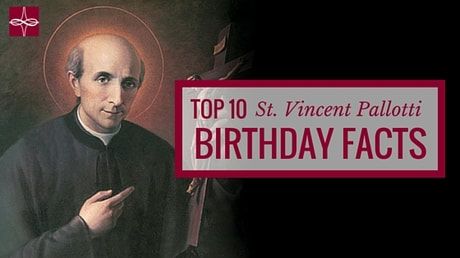
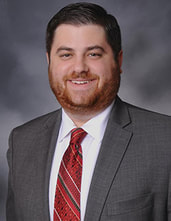
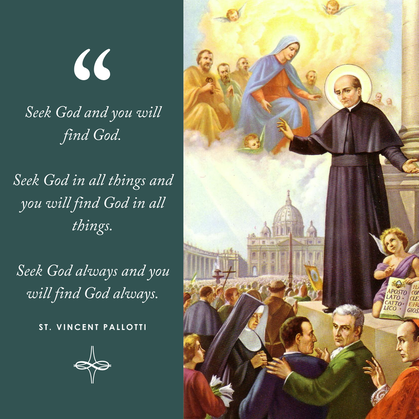
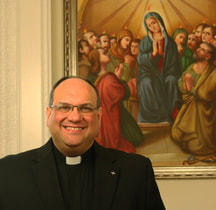
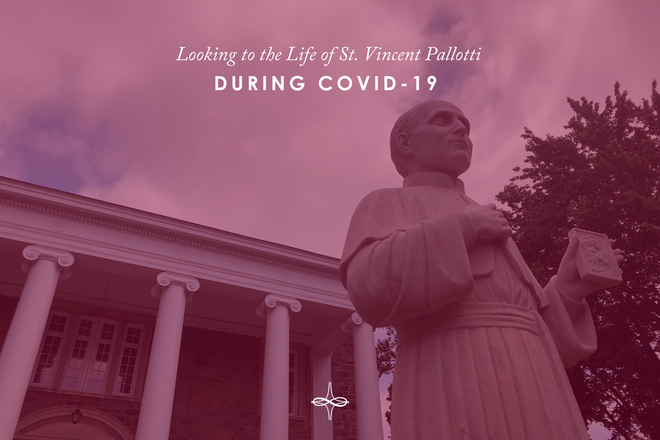
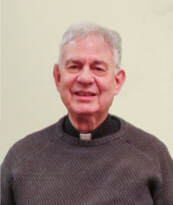
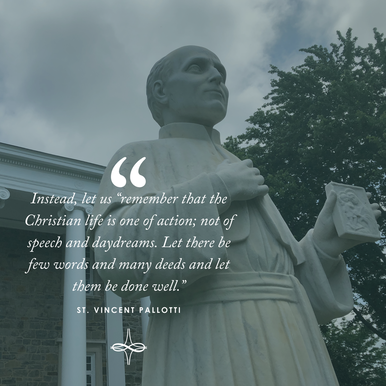
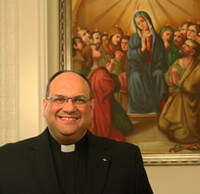
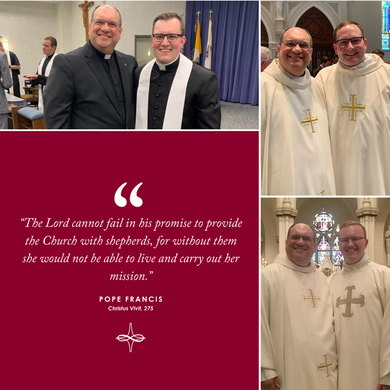
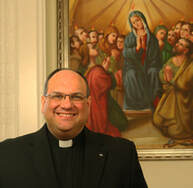
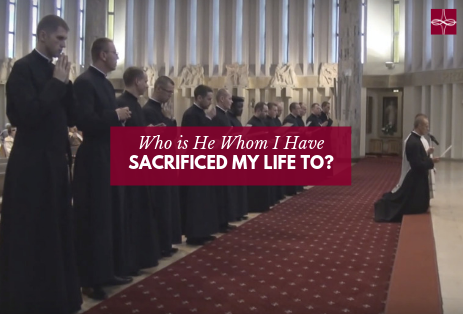
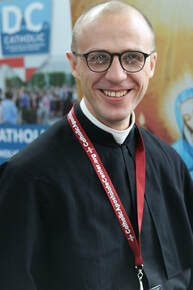
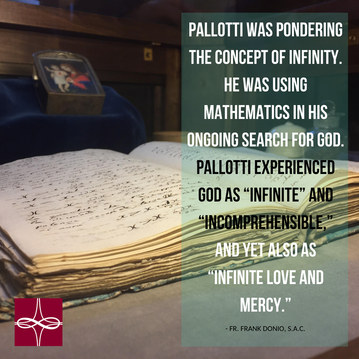
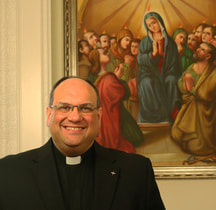
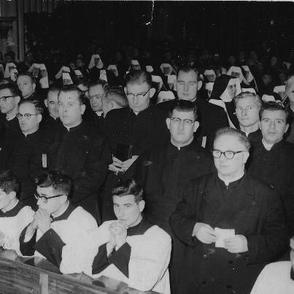
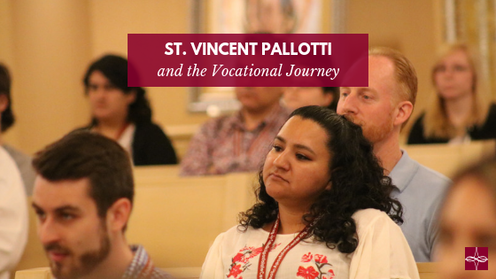

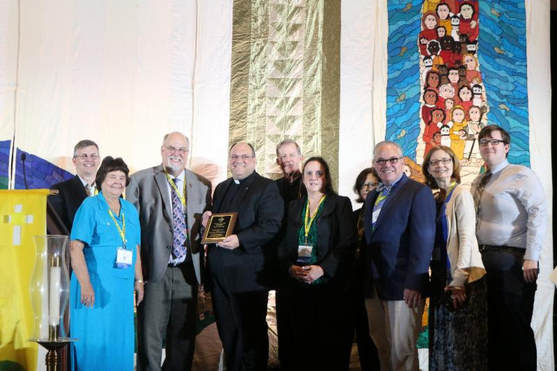
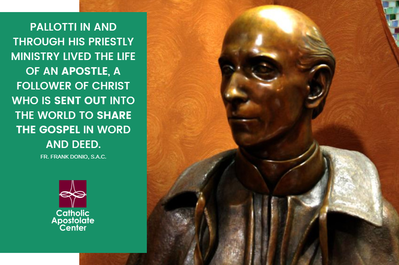
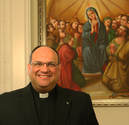
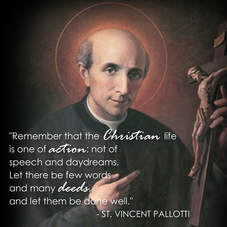
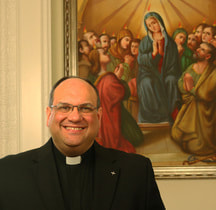
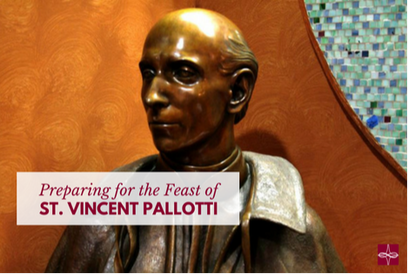
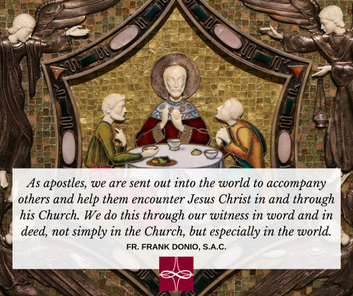
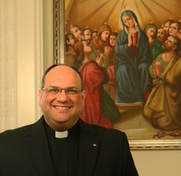
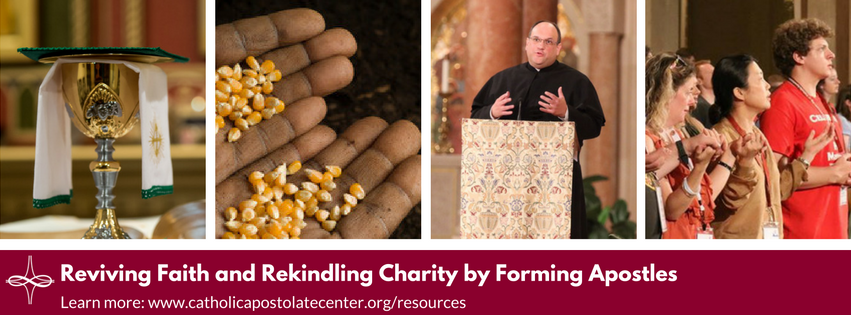
 RSS Feed
RSS Feed